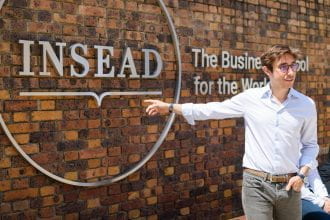 In recent years we have witnessed many events that fuelled the discussion about the ownership of boards. We can all remember the Enron and WorldCom cases. In many countries legislation has been implemented that increases the responsibility of non-executive directors for company policies and execution. The Netherlands is no exception to this development. That is why the role of the independent director was the central theme for this year’s Strategy Forum in Amsterdam. Active ownership, active boards.
In recent years we have witnessed many events that fuelled the discussion about the ownership of boards. We can all remember the Enron and WorldCom cases. In many countries legislation has been implemented that increases the responsibility of non-executive directors for company policies and execution. The Netherlands is no exception to this development. That is why the role of the independent director was the central theme for this year’s Strategy Forum in Amsterdam. Active ownership, active boards.
The Dutch alumni were presented with three different speakers each giving their own reflection about the changing role of non-executive directors. Professor Ludo van der Heyden, Academic Director, INSEAD Corporate Governance Initiative and The INSEAD Chaired Professor of Corporate Governance, took the audience on a trip through history showing that there have always been flaws in organising control and oversight in organisations.
While the Dutch East India Company (VOC) was very successful during its existence it seems that, with an active, independent board, the company could have been successful for a longer time. The VOC suffered from insider trading, directors trading for their own account and double book keeping. Even then, in 1740, the government had to bail out the company.
Another company that was in the news more recently, is Rabobank. Rabobank was involved in the Libor trading scandal. Chairman of the Supervisory Board, Wout Dekker AMP’92Jun, former CEO of Nutreco, shared his view on the events while having a fireside chat with Rens de Jong, the moderator. Mr. Dekker was very open about his view on the development of the situation and how reality made him change his approach for handling the aftermath. It was definitely a very active role for Mr. Dekker.
As a former lawyer, Professor of Corporate Governance and now President of the Executive Board of the Vrije Universiteit Amsterdam, Mr. Jaap Winter offered a more introspective point of view on the changed role of non-executive directors. . After analysing the changes in the corporate environment, the board roles and the evolution of supervision, Mr. Winter added a more human element to the discussion.
 Having a supervisory role in an organisation is all about values and purpose, requiring reflection under uncertainty, especially in a world that changes at a fast pace. It is equally about learning from events, interaction with executives and learning about oneself in terms of letting go yet being in control. It is important to be close but not in the middle of daily operations and forsake the desire to ‘look good’.
Having a supervisory role in an organisation is all about values and purpose, requiring reflection under uncertainty, especially in a world that changes at a fast pace. It is equally about learning from events, interaction with executives and learning about oneself in terms of letting go yet being in control. It is important to be close but not in the middle of daily operations and forsake the desire to ‘look good’.
Professor van der Heyden addressed the issue of High Performing dualities. We all try to perform better than average and commit to exceeding the bar. The results and performance give us a great sense of pride.
Performing worse than the bottom line leads to dissatisfaction, disappointment and ultimately failure and shame which again lead to a tough fight to recover from falling below the bar. Professor van der Heyden introduced five energy batteries to aid non-executives:
- Inspirational skills – non-executives give sense to the sense
- Rational/logical skills – non-executives need to understand their environment and be able to act in this environment
- Physical skills – non-executives need to be in good health and work to keep up with the pace of change
- Emotional/relational skills – non-executives need to be able to work as a team and with other teams. They need to be able to keep up good relationships
- Time skills – non-executives need to bring their experience to the table in the present and use it to have a vision for the future.
There are different challenges and gaps on all five levels between what is now and what should be. Taking away these gaps and focusing on learning increases board effectiveness.
Being a non-executive is like being an athlete and board meetings are like the final events in a competition. It’s hard to perform on the highest level in all circumstances in any event. The non-executive role is something we shouldn’t underestimate.
If you are a non-executive director, are you still learning? Are you aiming for excellence and are you improving? If you look at your other activities are they synergistic? Is your portfolio of activities balanced? But more important than your own performance: are you convinced that you and your non-executive colleagues are doing the right thing?


